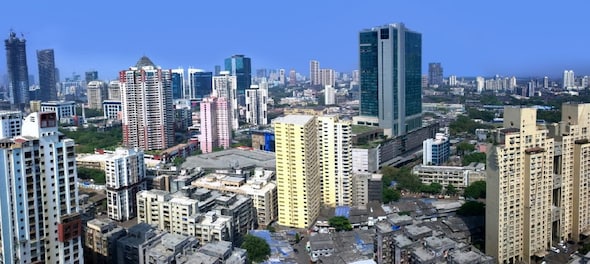
The mean annual temperatures in Mumbai and Delhi will rise by 5 degrees Celsius between 2080-99 if the global carbon dioxide emissions trend continues and doubles by 2050, Greenpeace India has predicted. The report on India’s heatwave projections by Greenpeace is based on the sixth assessment of the Intergovernmental Panel for Climate Change (IPCC).
As per the report, Delhi’s annual maximum temperature (the median of June record from 1995 to 2014) will jump to 45.97 degrees Celsius between 2080 and 2099 from the present median of 41.93 degrees Celsius. Maximum temperatures can rise to 48.19 degree Celsius in “some extreme years”.
During the recent heatwave Delhi recorded 43 degrees Celsius on April 29, which was significantly higher than the average maximum temperature for the month of April. Historical data suggests that only 4 years have recorded a temperature higher than 43 degrees Celsius for the month of April.
In the same scenario of doubling carbon emissions, Mumbai and Pune will also see 5 degrees Celsius rise in temperature with the maximum temperature increasing by 4.2 degree Celsius.
As per the heatwave assessment by Greenpeace India, the inland cities are at a significantly higher risk of heatwaves. The temperature rise is expected to severely impact cities like Delhi, Lucknow, Patna, Jaipur and Kolkata, which share similar temperature patterns. However, coastal city Chennai will be 4 degrees C warmer than now on average with the maximum temperature becoming 3.7 degrees C higher.
The drastic increase in temperature will result in unprecedented and prolonged heatwaves, extreme weathers, increased hospitalisations and fatalities along with irreparable damage to agriculture and wildlife. The most vulnerable populations, including the urban poor, outdoor workers, women, children, senior citizens and sexual minorities, will be at a significantly greater risk, as they lack adequate access to protective measures.
“If we do not act now, the threat is only going to increase in frequency, duration and magnitude.” said Avinash Chanchal, Campaign Manager, Greenpeace India.
(Edited by : Sudarsanan Mani)
First Published: May 14, 2022 4:44 PM IST
Check out our in-depth Market Coverage, Business News & get real-time Stock Market Updates on CNBC-TV18. Also, Watch our channels CNBC-TV18, CNBC Awaaz and CNBC Bajar Live on-the-go!


Tents, fans, ambulances – Karnataka gears up for voting on May 7 amid soaring heat
May 5, 2024 6:19 PM
Karnataka Congress files complaint against BJP’s JP Nadda and others over alleged MCC violation
May 5, 2024 3:20 PM
PM Modi to contest from Varanasi, to file nomination papers on May 14
May 5, 2024 2:49 PM
Prajwal Revanna's father in custody for alleged kidnapping and sexual abuse
May 4, 2024 7:53 PM

